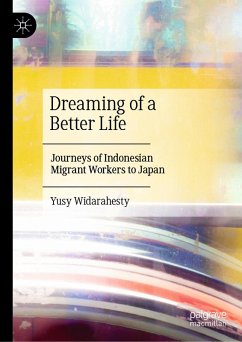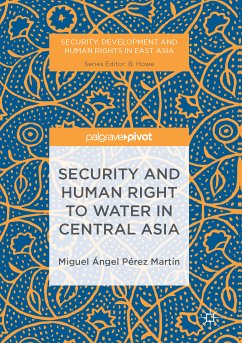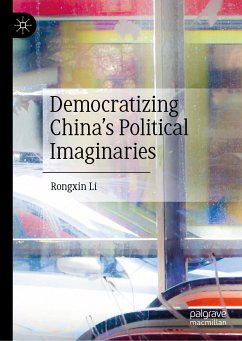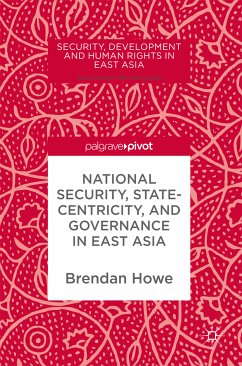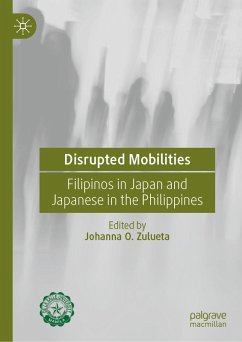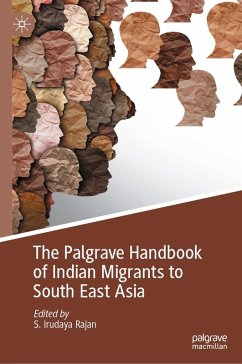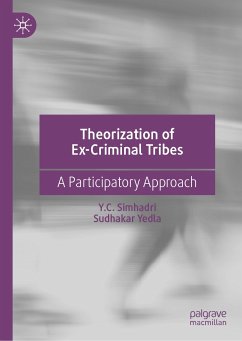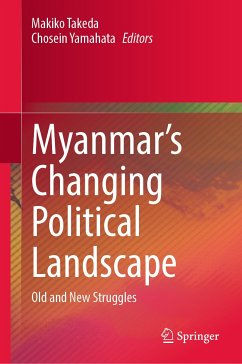
Social and Political Deglobalisation (eBook, PDF)
Covid-19, Conflict, and Uncertainties in Malaysia
Redaktion: Ying Hooi, Khoo; Govindasamy, Anantha Raman; Ganesan, Kavitha
Versandkostenfrei!
Sofort per Download lieferbar
96,95 €
inkl. MwSt.
Weitere Ausgaben:

PAYBACK Punkte
48 °P sammeln!
This book focuses on the discourse of de-globalisation in Malaysia by looking at the implications of this process politically, economically, socially, and environmentally. The rise of right-wing political parties and a decline in global economic interdependence have rapidly fuelled the de-globalisation process by creating conflicts and uncertainties in many parts of the world. The battle against the Covid-19 pandemic has spurred a great challenge among the global community, thus becoming a catalyst in the de-globalising process worldwide. While there have been contested opinions on whether we ...
This book focuses on the discourse of de-globalisation in Malaysia by looking at the implications of this process politically, economically, socially, and environmentally.
The rise of right-wing political parties and a decline in global economic interdependence have rapidly fuelled the de-globalisation process by creating conflicts and uncertainties in many parts of the world. The battle against the Covid-19 pandemic has spurred a great challenge among the global community, thus becoming a catalyst in the de-globalising process worldwide. While there have been contested opinions on whether we are now in the temporary phase of de-globalisation, what is clear is that the pandemic adds momentum to the trend. Now that the world has entered the post-Covid-19 phase, is the discourse of de-globalisation still relevant?
Since the emergence of this pandemic, Malaysia has been facing not only a change of government but also a rapid decline in its economy, a rise in unemployment and living costs, with the human rights situation deteriorating as the State of Emergency was imposed. All of these add up to a shift toward de-globalisation. Chapters in this book, therefore, engage with this issue from different perspectives, such as conventional warfare, bio-constitutional implications to the right to health, labour, migrants and refugees, digital education, indigenous people and so forth.
The rise of right-wing political parties and a decline in global economic interdependence have rapidly fuelled the de-globalisation process by creating conflicts and uncertainties in many parts of the world. The battle against the Covid-19 pandemic has spurred a great challenge among the global community, thus becoming a catalyst in the de-globalising process worldwide. While there have been contested opinions on whether we are now in the temporary phase of de-globalisation, what is clear is that the pandemic adds momentum to the trend. Now that the world has entered the post-Covid-19 phase, is the discourse of de-globalisation still relevant?
Since the emergence of this pandemic, Malaysia has been facing not only a change of government but also a rapid decline in its economy, a rise in unemployment and living costs, with the human rights situation deteriorating as the State of Emergency was imposed. All of these add up to a shift toward de-globalisation. Chapters in this book, therefore, engage with this issue from different perspectives, such as conventional warfare, bio-constitutional implications to the right to health, labour, migrants and refugees, digital education, indigenous people and so forth.
Dieser Download kann aus rechtlichen Gründen nur mit Rechnungsadresse in A, B, BG, CY, CZ, D, DK, EW, E, FIN, F, GR, HR, H, IRL, I, LT, L, LR, M, NL, PL, P, R, S, SLO, SK ausgeliefert werden.



